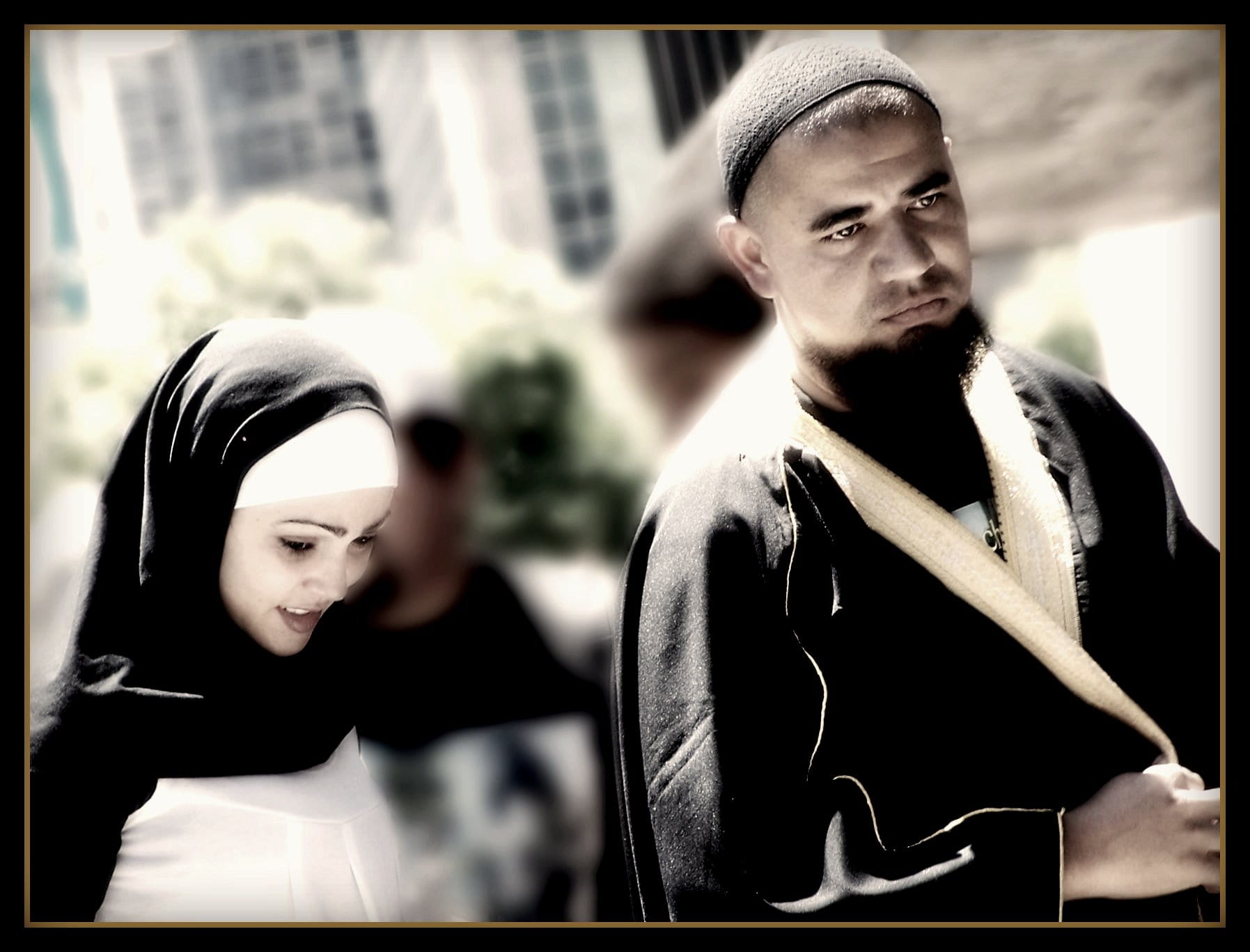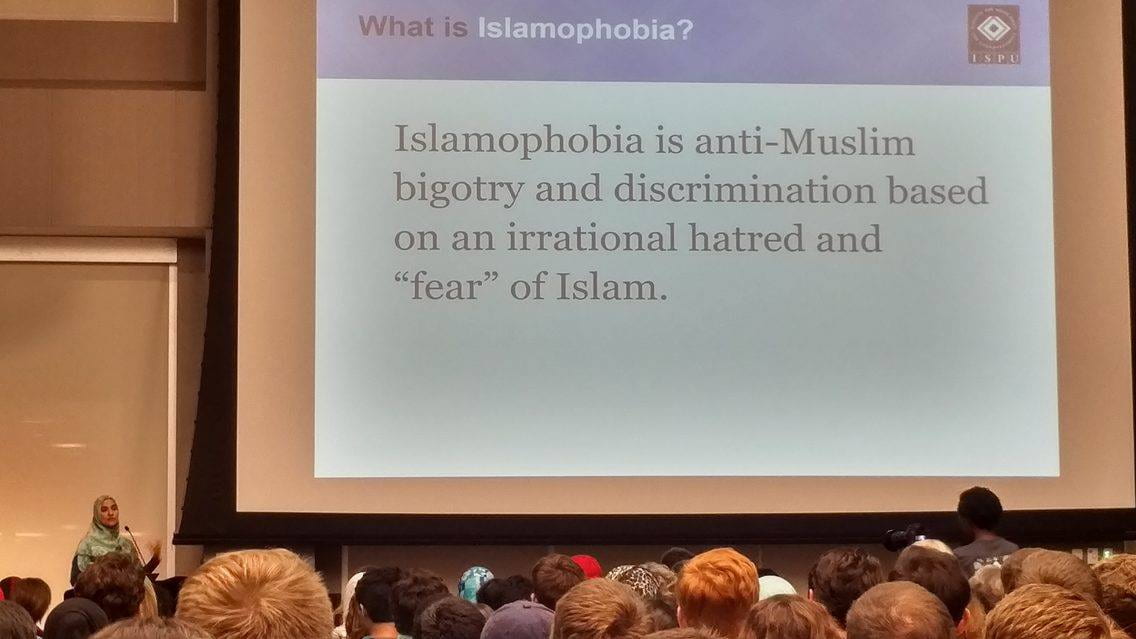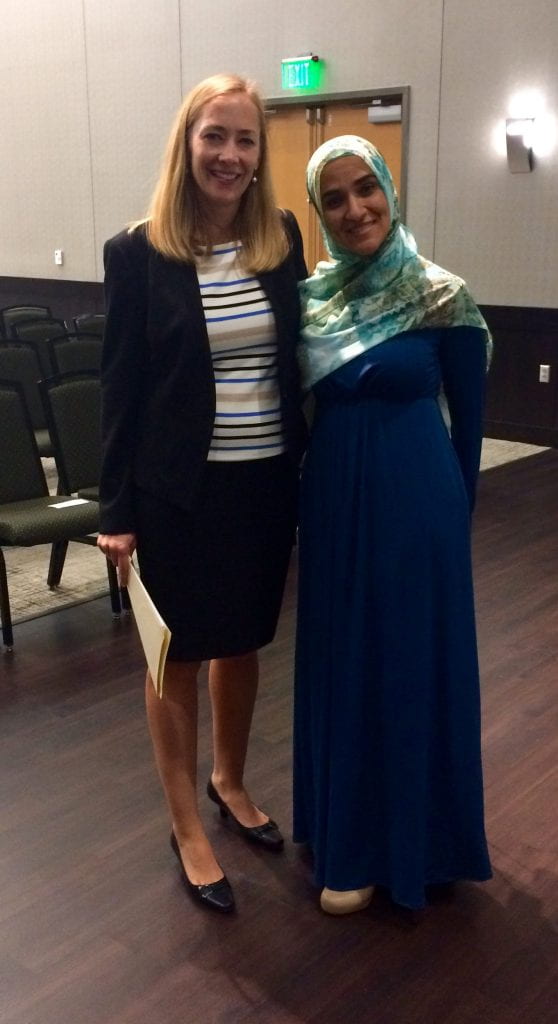
A few weeks ago, I had the opportunity to meet Dalia Mogahed, Research Director at the Institute for Social Policy and Understanding (ISPU). She delivered a powerful speech at UAB’s Hill University Center about an issue that has plagued American society for many years, Islamophobia.
Islamophobia, as Dalia Mogahed defines it, is “anti-Muslim bigotry and discrimination based on an irrational hatred and fear of Islam”. According to a new report generated by the Council on American-Islamic Relations (CAIR) and the University of California, Berkeley, over $200 million dollars is spent annually to perpetuate this fear, which is evidenced by the tone and volume of reporting about Muslims. Nearly 80% of the media coverage about Islam is negative portraying Muslims as more dangerous than countries armed with nuclear weapons, drug addiction, or diseases such as cancer. As Americans, it is important that we seek out facts and form our own opinions rather than bending to the bias of others. Prejudice of any kind is a problem that affects all Americans by threatening our safety and way of life.

According to an ISPU report, Islamophobia is a gateway to other types of discrimination such as anti-Semitism, human rights violations, and anti-rights legislation. For example, Mogahed mentions the recently released Community Brief “Manufacturing Bigotry”. In that study, researchers find that legislators who promote Islamophobic agendas are 80% more likely to support anti-foreign legislation, voter identification mandates, and limitations on immigration and oppose women’s rights, access to abortion, and same-sex marriage – all laws empowering groups marginalized in the political process. She points out that
“fear erodes freedom, which is the foundation of our democracy”
and makes us more accepting of authoritarianism, conformity, and prejudices.
Each of these limiting ideas makes all Americans less safe. In fact, according to a recent report generated by Freedom house, the perpetuation of Islamaphobia aids the rise of terrorist rhetoric and opens the door for extremist ideology. One example Mogahed provided is a recruitment tape released by Al-Shabaab, a Somali terrorist group. In this clip, terrorists use an audio excerpt from one of presidential nominee Donald Trumps rants to push their Islamist views and label American society as racist.
What can we as Americans do about this and how can we protect our freedom and ideals? Mogahed states that we need to educate ourselves and replace our fears with facts. According to Martin Scott, author of the journal “Catholics and the Ku Klux Klan”, nearly a century ago this same scenario presented itself, but it was Catholicism that was the recipient of discrimination and prejudice perpetuated by groups like the True Americans and Ku Klux Klan.

Today, we need to understand who American Muslims are and how they help shape the diversity of our nation. American Muslims are not only Arab. In fact most are African American, Caucasian, Asian, and Hispanic. According to Mogahed, Muslims are the most likely group to reject military attacks on civilians, and contrary to popular belief those that attend the masjid or “mosque” are the most likely to be engaged in community and civic activities, not radical Islam.
American Muslims, on the whole, retain strong simultaneous American and Muslim identities and want to work to protect the American way of life.
Therefore, it is our duty to help Muslims protect their identity by not associating every Muslim with ISIS or other radical Islamist factions. If we learn about Islam and get to know the Muslims in our community we will see that they are normal people who are more disgusted with radical Islamic ideology than anyone else because they are the group that is most affected by the actions of radical Islamist groups. I have traveled across the globe and met many Muslims along the journey. They would all agree that there is nothing worse than the killing of innocent people and any individual who condones these acts of violence does not represent normative Islam and its values. To protect our American way of life we have to move past the unfair framing of all Muslims as terrorists. Mogahed advises that we need to create strong diverse coalitions that protect human rights, and religious freedoms to build a stronger more pluralistic America. We have to challenge bigotry by calling out prejudices when we see them. At the same time, we need to not be afraid to call out anti-Muslim bias in media coverage, not shy away from having difficult conversations challenging prejudice, preach outside the choir and vote for government representatives who will uphold American values as opposed to letting fear dictate policy.

